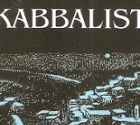
Written by Azriel Winnett
Strategic Book Group
ISBN: 978-1-60976-983-3
Paperback. 114 pages.
Well, just how does one build a good relationship? Reading this book we realize, once more, that it’s hard work needing a lot of application, self-control and savvy.
Azriel Winnett – writer, editor, publisher, public speaker and blogger – builds his book by using stories (some true and some just to illustrate a point) of how people interact with each other. Each short chapter ends with an exercise for the reader.
People are shown in various relationships: mother and child, doctor and patient, mother-in-law and son-in-law and, of course, marriage, “the cornerstone of society, eliminate it and the society crumbles”. On this particular subject Winnett elaborates extensively.
Some of the points he makes:
Never rely on your intuition, and more importantly – never rely on the intuition of your partner. Ask your soulmate what’s on his or her mind and don’t be shy to say what’s on yours.
“There are times when the simple act of listening ... can work wonders you would not have dreamed of.”
The ego (not to be confused with self-esteem) is called a “monster”, “public enemy No. 1, that pompous ass of an ego”. It tears the heart out of potentially good relationships: “It is the stubborn streak in the best of us that insists we are always right on all occasions and in every circumstance... and that the other side is always wrong.”
Winnett emphasizes the power of words; that speech can kill, but it can also achieve beautiful things. Humans, he says, have a remarkable talent for hurting each other with their speech. “It is a power almost impossible to over-estimate.”
He sounds a warning against having relationships relying on “automatic pilot” saying:
“We have to watch where we are headed, and make immediate course adjustments as necessary”.
And, of course, the message throughout the book – the solution to a better relationship lies in our hands.
Reading this book aroused my curiosity as to how long the author, a former South African, has been living in Israel. On his website I learned that he has been a resident of Betar Illit, near Jerusalem, for the past 10 years.
Winnett has a western, civilized approach to interpersonal relationships, especially in regard to marriage. "Give and take is more likely a recipe for disaster," he writes. Instead, he stresses, "It's give and give and give again." This, he writes, “leads to the royal road to happiness.” While this may be accepted by many – although it is immensely difficult to stick to – does it work with everyone?
The first time I heard the term freier, (a person who gives and gives while others take and take), was in Israel. The horror shown by the Israeli for being thought a freier is a well-known phenomenon. The word is used as an expression of scorn, and even celebrated in song.
In the first Gulag Archipelago book, the world of the Russian prison camps is described: one is either a blatnya – a person who successfully fits into the horrendous camp life into which he has been thrown by stealing, cheating and lying – or a freier, a man who refuses to stoop to the level of the reality around him. The freier, consequently, “nobly” suffers from hunger, punishment and other indignities. As a result of not adapting he loses everything but his self-respect.
Many parts of the world,the Middle East included, would be far better places if leadership set the model for the types of lessons one learns from this book. But as they don’t want to be, or even thought to be freiers, they will take and take. And Jacob Q. Public will often follow their example.
What one learns after reading “How To Build Relationships That Stick” is that the hardest battle of all is the one within oneself.
 That Certain Smile
That Certain Smile Fay Shelter 1919-2012
Fay Shelter 1919-2012 Doreen (Devorah) Goldberg 1924 – 2012
Doreen (Devorah) Goldberg 1924 – 2012 Robert Kwong at the Yeshiva
Robert Kwong at the Yeshiva  Friday Night with the Pope - A Book Review
Friday Night with the Pope - A Book Review The Kabbalist - A Book Review
The Kabbalist - A Book Review  Mike Porter
Mike Porter